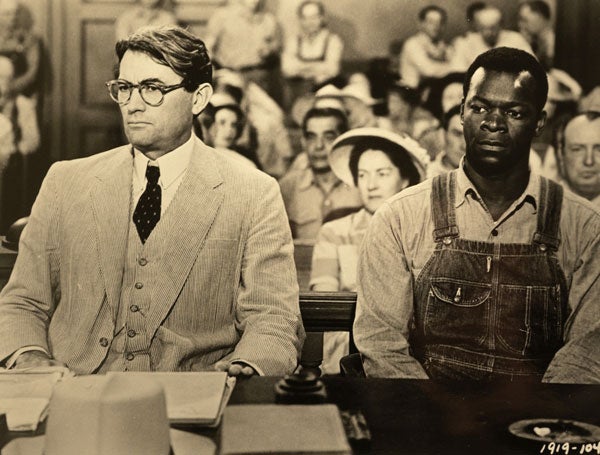Book of a lifetime: To Kill a Mockingbird by Harper Lee
From The Independent archive: Roshi Fernando finds that the Southern politeness, the heat, the black and whiteness of the book all resonates deeply with her life growing up in England and Sri Lanka

Set in the fictional Maycomb County, Alabama, in the 1930s, To Kill a Mockingbird is simply about black and white. It is a gentle portrayal of the extremes of racism suffered by black people, and the way that white liberals like lawyer Atticus Finch negotiate the criss-cross of fine lines through their society. Scout and Jem, the children of Finch, episodically live through three years during which their father takes on the case of his lifetime: defending Tom Robinson against a rape charge brought by Mayella Ewell.
The story is the children’s daily lives: their fascination for the people on their street, particularly the hermit Boo Radley, their relationships with their neighbours and their schoolfriends as it slowly dawns on the town that Atticus is not only going to take on the case of a black man accused of rape, but is actively going to defend him.
What was it about the Southern politeness, the heat, the black and whiteness of the book, that went to my core? It was a society I recognised, in England and in Sri Lanka. I first read the book in 1977. That summer, I had witnessed the National Front march down Lewisham High Street. I was told I couldn’t be the princess, or, come to that, any of Charlie’s Angels, in the playground, because brown was ugly. My parents were teachers, Methodists, socialists. They did not acknowledge racism, or talk about it. They were above that: my father was training to be a local preacher, and had a good line in Atticus-style aphorisms.
Subscribe to Independent Premium to bookmark this article
Want to bookmark your favourite articles and stories to read or reference later? Start your Independent Premium subscription today.
Join our commenting forum
Join thought-provoking conversations, follow other Independent readers and see their replies